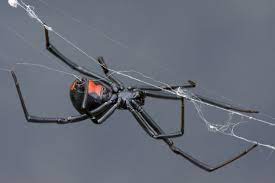this post was submitted on 23 Jan 2024
685 points (97.2% liked)
Comic Strips
16468 readers
2582 users here now
Comic Strips is a community for those who love comic stories.
The rules are simple:
- The post can be a single image, an image gallery, or a link to a specific comic hosted on another site (the author's website, for instance).
- The comic must be a complete story.
- If it is an external link, it must be to a specific story, not to the root of the site.
- You may post comics from others or your own.
- If you are posting a comic of your own, a maximum of one per week is allowed (I know, your comics are great, but this rule helps avoid spam).
- The comic can be in any language, but if it's not in English, OP must include an English translation in the post's 'body' field (note: you don't need to select a specific language when posting a comic).
- Politeness.
- Adult content is not allowed. This community aims to be fun for people of all ages.
Web of links
- [email protected]: "I use Arch btw"
- [email protected]: memes (you don't say!)
founded 2 years ago
MODERATORS
you are viewing a single comment's thread
view the rest of the comments
view the rest of the comments

Interesting how the hourglass mark is drawn on the top of the abdomen instead of underneath. I guess it makes the spider more recognizable as a black widow even if it's not as anatomically accurate.
As someone who lives in a place where I have to check any black spiders I see to make sure they're not black widows, that's the first thing I noticed, too. It's not like drawing the hourglass on the bottom makes it harder to see/recognize, especially when the text explicitly identifies it as a black widow.
I guess the artist has never seen an actual black widow and this is done out of ignorance rather than as a conscious design choice. It's possible that there are multiple subspecies of black widow, some of which have the markings on the top, but I've never heard of that. Then again, I'm no biologist...
I'm from Australia and I always thought it was on the top. Turns out our black widow, affectionately known as a redback, has the marking on top. Not sure if the two are actually related, though.
Yes, they are all in the Latrodectus family, all have venom containing the neurotoxin latrotoxin, which causes latrodectism (pain, vomiting, muscle rigidity, sweating).
Australian Redbacks are Latrodectus hasseltii:
New Zealand Katipo are Latrodectus katipo:
Western Black Widows are Latrodectus hesperus:
Southern Black Widows are Latrodectus mactans:
Female:
Male:
Northern Black Widows are Latrodectus variolus:
European Black Widows are Latrodectus tredecimguttatus:
South American Black Widows are Latrodectus corallinus:
https://en.wikipedia.org/wiki/Latrodectus
Thank you for the well sourced response.
I used to be in a black widow-free area but it seems that European "13 spots" one is now starting to show up here.
Probably not good news.
Yeah when I looked them up via image search in case I might be wrong, and there were occasional depictions with the hourglass on top but they seemed to be photoshopped images or illustrations that would be used for a "5 ways to kill these pests!!" clickbait websites.
In most cases it probably is from a lack of real world exposure to the spiders in question. They were pretty common where I grew up and I was taught to be on the lookout for the black shiny abdomen because you can't always see the hourglass.
Black widows are so common where I am, I don't even need to see that hourglass to know it's one. I can even identify males, which don't look very similar to the iconic females.
They also do sometimes have red markings on their back. Just do an image search for black widows; many of them have a whole band of red that goes from the belly up the back. Can't say I've seen any like that IRL, though.